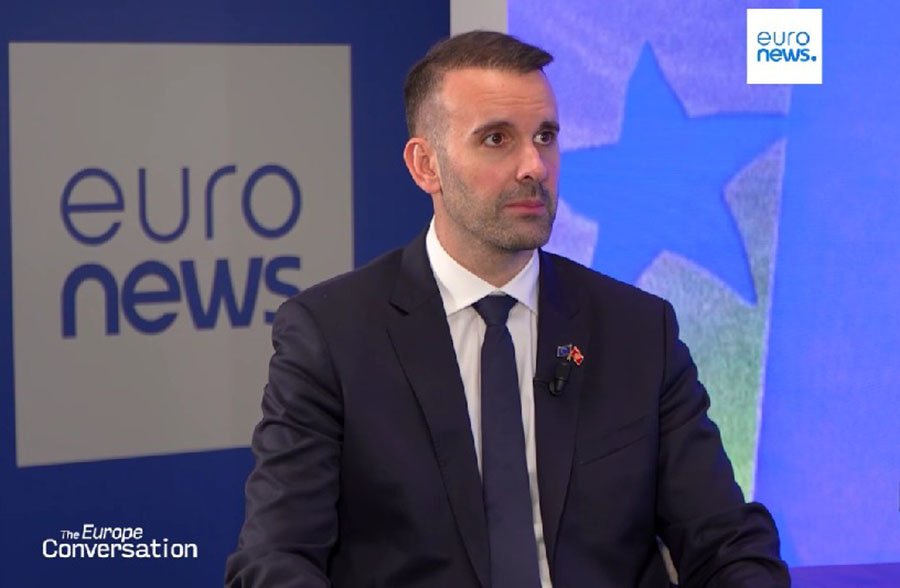Montenegro’s Prime Minister vows to introduce visa restrictions for Russians

Montenegro will toughen visa rules for Russian citizens in line with EU policy, Prime Minister Milojko Spajić said. The new measures are being implemented as part of the reform programme aimed at joining the bloc by 2028, Euronews reports. Earlier, the authorities were reluctant to introduce restrictions for Russians due to their significant role in the tourist flow.
EU requirements
Milojko Spajić stressed that Montenegro fully follows the EU’s Common Foreign and Security Policy. The prime minister placed special emphasis on the rule of law — an area closely monitored when it comes to Western Balkan countries. He recalled that Montenegro had made progress here, as evidenced by the closure of Chapter 5 on public procurement. At the same time, he noted that much more needs to be done so that the country can “add value rather than create problems” after joining the European Union. At present, seven out of 33 negotiation chapters with the EU have been closed, and another five are expected to be completed by the end of the year.
Recently, European Commission President Ursula von der Leyen stressed that Montenegro is demonstrating significant progress in implementing the Western Balkans Growth Plan and announced an additional €8 million in support. If reforms continue, total funding may exceed €380 million. She also noted the country’s accession to the Single Euro Payments Area (SEPA) and reminded that the abolition of roaming between the EU and Montenegro is planned for 2026.
Impact on tourism
Montenegro’s President Jakov Milatović earlier noted that changes to the visa regime may cause economic damage. Tourism accounts for about 26% of GDP, and any restrictions may reduce visitor numbers and sector revenues. For this reason, some decisions are being postponed, including those related to Russia, from where around 230,000 tourists arrive annually.
Currently, Russian citizens can enter Montenegro without a visa and stay for up to thirty days. They remain the largest group of foreign investors and the most numerous foreign resident community: 18,427 Russians hold a residence permit. Milatović stressed that to comply with EU standards, visas for Russians will still be introduced — and in the near future.
Who has already lost visa-free entry
In October, Montenegro cancelled visa-free regimes for citizens of Armenia, Uzbekistan, Kuwait and Egypt in line with EU recommendations. The original list included 11 countries: Russia, Belarus, Kazakhstan, Azerbaijan, Armenia, Uzbekistan, Egypt, Qatar, China, Kuwait and Turkey.
Later, the authorities allowed visa-free entry for residents of Bahrain and Saudi Arabia instead of the expected tightening.
The European Union threatened to withhold €383.5 million in payments from the Reform and Growth Facility, after which Montenegro changed its visa regime for several countries and plans to gradually expand this list.
Other obstacles for Montenegro
Challenges also include the influence of pro-Serbian parties and the cautious attitude of several EU member states towards enlargement. French President Emmanuel Macron had previously stated that the EU must first undergo internal reform before accepting new members. However, according to Milatović, the French leader’s position has become more favourable. Similar shifts, he noted, are also visible among other leaders.
Prime Minister Milojko Spajić believes that Montenegro needs to further strengthen its relations with all 27 EU countries. At the same time, it is emphasised that the Union itself should maintain the momentum of enlargement and preserve the appeal of European integration. Montenegro aims to join the European Union by 2028 — a goal that remains central to the country’s policy and shapes most of its reforms, including changes to the visa regime.
New EU measures
The European Union has already taken new steps to tighten visa rules for Russians. In early November, Russian citizens were banned from obtaining multiple-entry Schengen visas: only single-entry visas are now available, and a new application is required for each trip. These measures, the European Commission explained, are linked to increased security risks following hybrid drone attacks attributed by Western structures to Moscow. Additional tightening measures may follow in December, as earlier reports indicated that further steps are being prepared within the EU.








